The US and China are accelerating their tit-for-tat trade war in the semiconductor sector amid an ongoing trade war.
Yesterday (December 10), Reuters reported that DJI and Autel Robotics (both based in China) could be banned from selling new unmanned aerial vehicles (UAVs) in the US market under a military bill expected to be voted on by the US House of Representatives this weekend. In September, the US House of Representatives voted to ban new DJI UAVs from operating in the US. The US Department of Commerce is also considering whether to impose restrictions on other Chinese UAVs operating in the US.
"Tit for tat"
The information about DJI and Autel Robotics is the latest development surrounding the escalating trade war between the US and China, especially in the technology sector in general and the semiconductor industry in particular.

NVIDIA has just been announced by China to be investigating
Earlier this week, on December 9, China announced that it had launched an investigation into NVIDIA, the leading US chipmaker. The investigation is aimed at clarifying whether NVIDIA violated China's anti-monopoly law. However, Chinese authorities did not detail how the corporation may have violated China's anti-monopoly law. The move to investigate NVIDIA is seen as Beijing's retaliation against Washington's latest restrictions on the Chinese chip sector.
Last week, four Chinese industry associations issued a rare response, saying Chinese companies should be wary of buying US chips because they are “no longer safe.” They said Chinese companies should buy domestic chips.
In contrast, last week, Washington launched a new campaign to punish China’s semiconductor industry by restricting US exports to 140 Chinese companies, including chip equipment manufacturers. Shortly after Washington’s announcement, Beijing banned exports to the US of key minerals such as gallium, germanium and antimony, which the US relies on China to develop its semiconductor industry.
On December 1, international media reported that China had just approved a list of 700 restricted export items. Among them are many items that the US needs to develop important products, especially in technology. Typically, this list includes rare earths and some basic technology components that the US has long depended on for supply from China. The above list of restricted exports takes effect from December 1. Since August 2023, China has imposed export restrictions on gallium and germanium. Gallium is used in compound semiconductors, often used to increase transmission speed and increase the efficiency of radar.
China retaliates because the US restricts chip exports
Race to strengthen position
Responding to Thanh Nien yesterday (December 10) about China's move against NVIDIA, Ms. Bonnie S. Glaser (Director of the Indo- Pacific Program, German Marshall Fund in the US) commented: "The Chinese government has previously used legal investigations against foreign businesses to respond to governments. The move to investigate NVIDIA could be one of the steps Beijing is taking to retaliate against Washington's tightening of export controls on chip sales to China."
Similarly, Professor Stephen Robert Nagy (International Christian University - Japan, scholar at the Japan Institute of International Affairs) assessed: "The relationship between the two sides is entering a phase where Beijing responds to Washington's measures that undermine China's industrial and technological development. Beijing will conduct investigations like the one targeting NVIDIA. This "tit-for-tat" will happen more often between the two sides in the coming time, especially after Mr. Donald Trump takes office as US president. The two sides are trying to strengthen their positions to compete strategically as well as negotiate trade. He will also oppose China in terms of trade policy and inequality."
TikTok asks for "favor" from US court
TikTok and its Chinese parent company ByteDance filed a lawsuit on December 9 asking a federal appeals court to temporarily block a law that could lead to a US ban on the popular short video app next month while it awaits review by the US Supreme Court, the South China Morning Post reported.
Source: https://thanhnien.vn/my-trung-leo-thang-thuong-chien-nganh-ban-dan-185241210233544709.htm





![[Photo] Hanoi morning of October 1: Prolonged flooding, people wade to work](https://vphoto.vietnam.vn/thumb/1200x675/vietnam/resource/IMAGE/2025/10/1/189be28938e3493fa26b2938efa2059e)


























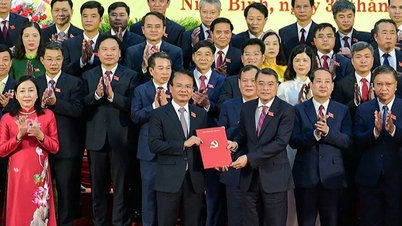

![[Photo] The 1st Congress of Phu Tho Provincial Party Committee, term 2025-2030](https://vphoto.vietnam.vn/thumb/1200x675/vietnam/resource/IMAGE/2025/9/30/1507da06216649bba8a1ce6251816820)
![[Photo] President Luong Cuong receives President of the Cuban National Assembly Esteban Lazo Hernandez](https://vphoto.vietnam.vn/thumb/1200x675/vietnam/resource/IMAGE/2025/9/30/4d38932911c24f6ea1936252bd5427fa)
![[Photo] Panorama of the cable-stayed bridge, the final bottleneck of the Ben Luc-Long Thanh expressway](https://vphoto.vietnam.vn/thumb/1200x675/vietnam/resource/IMAGE/2025/9/30/391fdf21025541d6b2f092e49a17243f)






















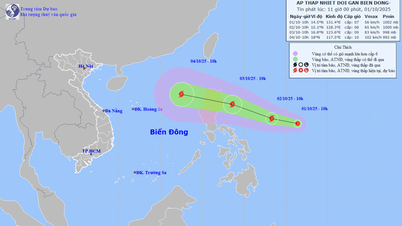
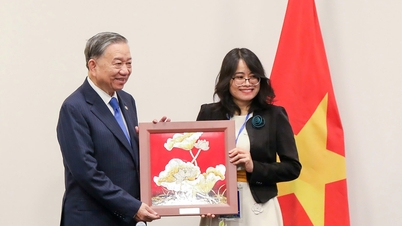

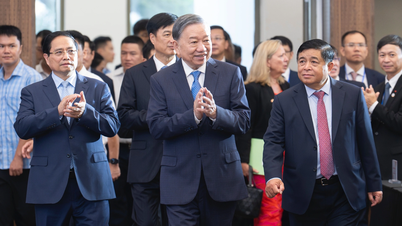








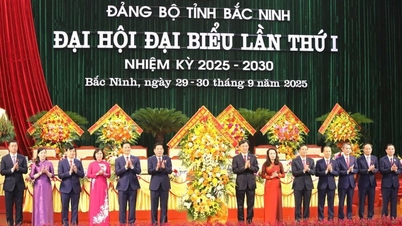







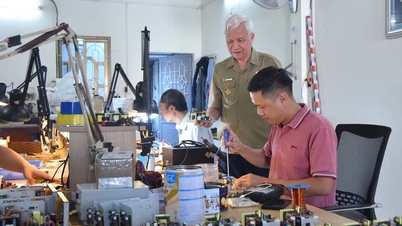















Comment (0)